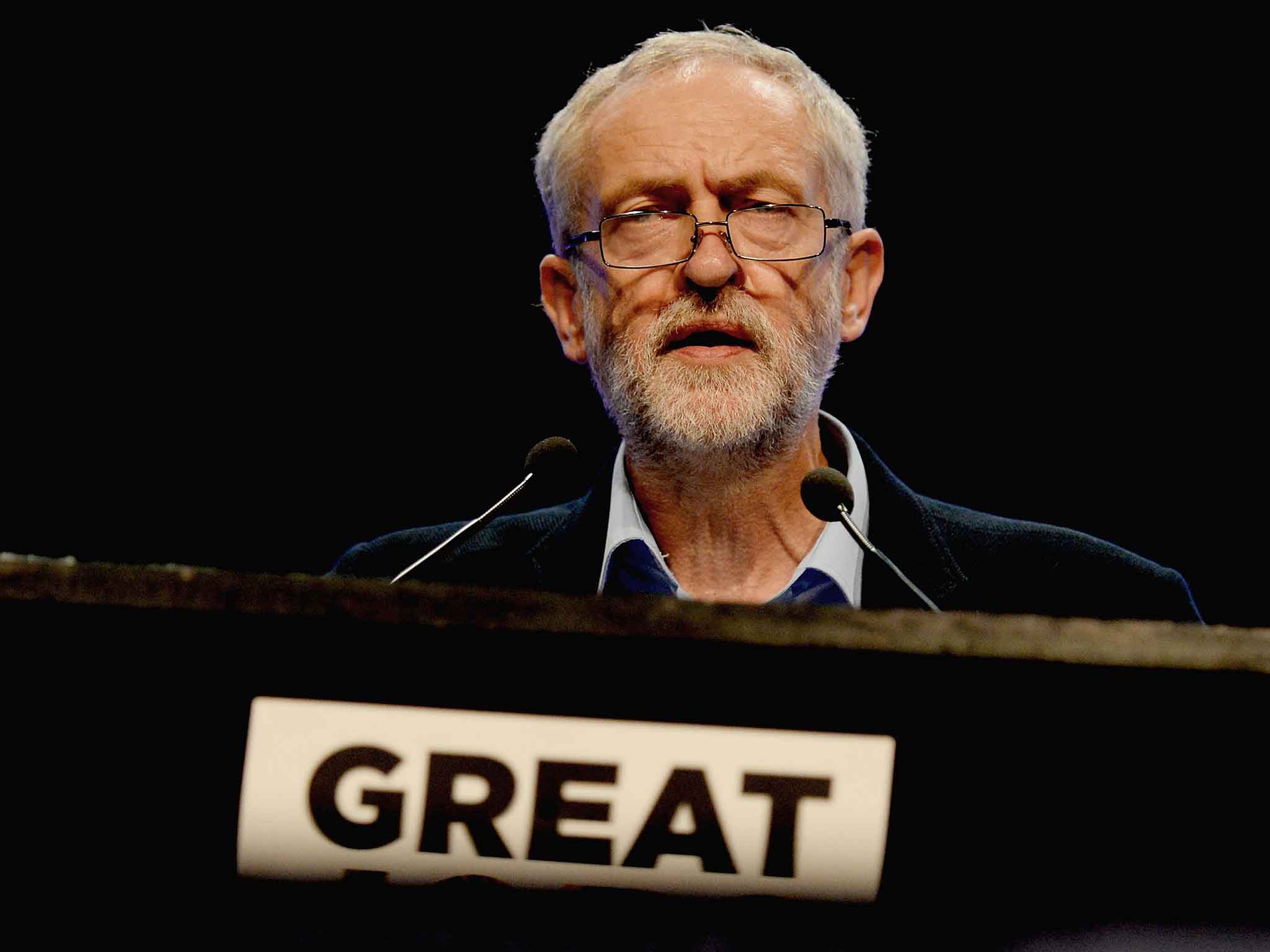Don’t ask what Jeremy Corbyn can do for your country – ask what his management style can do for your business
Terrible line manager? Direct him/her to the Corbyn school of leadership

Your support helps us to tell the story
From reproductive rights to climate change to Big Tech, The Independent is on the ground when the story is developing. Whether it's investigating the financials of Elon Musk's pro-Trump PAC or producing our latest documentary, 'The A Word', which shines a light on the American women fighting for reproductive rights, we know how important it is to parse out the facts from the messaging.
At such a critical moment in US history, we need reporters on the ground. Your donation allows us to keep sending journalists to speak to both sides of the story.
The Independent is trusted by Americans across the entire political spectrum. And unlike many other quality news outlets, we choose not to lock Americans out of our reporting and analysis with paywalls. We believe quality journalism should be available to everyone, paid for by those who can afford it.
Your support makes all the difference.Jeremy Corbyn spoke of “not imposing leadership lines”. He promised that “nobody has a monopoly of wisdom”. And he said that both young and old are “fizzling” with ideas for how things can be made better in Britain. And before even mounting the podium in Brighton for his conference speech he invited viewers, via video, to “join him on a fantastic journey”, in which politics is “done differently”.
This is what business and marketing academics call “Inclusive leadership””. For Jeremy Corbyn , it works. He attracted 10,000 volunteers during his leadership campaign (more than double the number of any of his rivals) and helped give Labour 50,000 new party members since the election. The positive impact of the inclusive approach is palpable – both in the numbers and in the fact Jeremy Corbyn received a standing ovation before he even started his Conference speech this week.
So what can businesses, bosses, and management commentators learn about leadership from Corbyn’s massive ascent from 200:1 rank outside to Labour party leader? The answer, unsurprisingly, is rather a lot.
Research over decades has shown that the top-down Command and Control, ‘Transactional’ style of leadership has a much less positive impact on motivation and productivity than its counterpart, ‘Transformational’ leadership. The ‘transactional’ puts an emphasis on hierarchy, the cost of workers’ mistakes, and the careful command and control of information – a style of leadership you might well recognise from your school or even work days.
The ‘transformational’ style of leadership, in comparison, values four core elements meant to energise workers: ‘inspirational motivation’ – shared communication of a vision; ‘individualised consideration’ – the embracing of individuals’ talents and views; ‘idealised influence’ – the promulgation of a shared sense of ethics and community; and finally ‘intellectual stimulation’ – the encouragement of creativity. All concepts, it would seem, that have been present and correct in the Corbyn campaign.
So, you have two styles of leadership with contrasting tendencies – with Corbyn seemingly belonging to one side more than the other. But Corbyn’s style of leadership also seems to have learnt something from the theory of ‘Servant Leadership’ – a US school of thought developed in the 1970s. ‘Servant Leadership’ emphasises the importance of listening to and understanding people’s perspectives. Consider, if you will, the new Labour leader’s decision to air people’s questions, not his own, at PMQs a fortnight ago. He received 40,000 responses after issuing the request to members in his first email to the party.
The lessons for organisations? An inclusive style of leadership delivers a motivated, productive and loyal workforce. Jeremy Corbyn, strange though it may seem, has not just reopened old debates on socialism and free-market capitalism in this country, he has also paved the way for businesses and organisations to reconsider the efficacy of their chosen leadership style.
Gloria Moss is Professor of Management and Marketing at Buckinghamshire New University and Visiting Professor at the Paris School of Business
Join our commenting forum
Join thought-provoking conversations, follow other Independent readers and see their replies
Comments